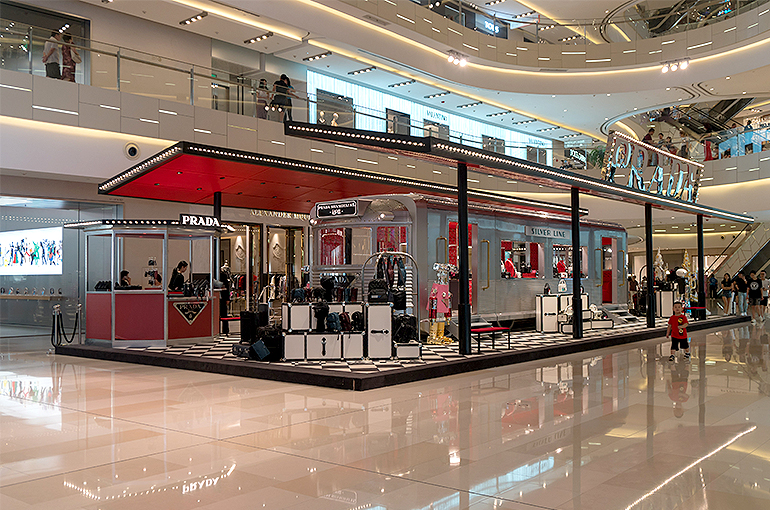 Chinese High-End Malls See Rental Incomes Drop as Luxury Spending Wanes
Chinese High-End Malls See Rental Incomes Drop as Luxury Spending Wanes(Yicai) Aug. 21 -- High-end shopping mall operators in China, including Hang Lung Properties, saw their rental incomes tumble in the first half of the year, as shoppers spent less on luxury goods.
Hang Lung’s revenue from property leasing fell 7 percent to HKD5.2 billion (USD667.3 million) in the six months ended June 30, its latest earnings report showed. That from the Chinese mainland sank for the first time, shrinking by HKD210 million (USD29.5 million) to HKD3.3 billion.
Other commercial property developers that run luxury malls, such as Swire Properties, also reported a similar falloff in rental incomes as consumers tightened their belts. Luxury goods sales in the mainland fell about 10 percent in the first seven months of the year, with the decline accelerating after May, according to a UBS Group report.
Since Hang Lung opened its first mall in Shanghai in 1999, its mainland rental income has set new records year after year, even during the three years of the Covid-19 pandemic, Honorary Chairman Ronnie Chan said in a letter to shareholders last year.
Overall revenue at the Hong Kong-based commercial real estate developer jumped 15 percent to HKD6.4 billion (USD897 million) in the first half.
Despite lower revenue from rents, space in Hang Lung's luxury malls remains almost fully let. For example, Plaza 66, one of the firm’s most profitable Shanghai malls, had a 100 percent occupancy rate in the first half, but its income fell 8 percent as tenants' sales dropped 23 percent.
Premium mall operators usually do not set fixed rents, but rather receive a percentage of their tenants’ sales, a expert at a leading real estate company told Yicai. So income is strictly related to their sales, the person noted, adding that some operators even offer renovation subsidies worth tens of millions of Chinese yuan, equal to millions of US dollars, to help tenants boost sales.
Luxury brands will likely slow the pace of store openings in the Chinese mainland from the second half of this year until 2026, so high-end mall operators may have to cut rents or adopt new strategies to retain tenants, the UBS report also said.
“Luxury goods consumption among middle-income individuals has fallen, as they are more enthusiastic about buying affordable alternatives because of the slower economic growth," a representative of a high-end shopping center in Shanghai told Yicai. “But luxury consumption among high-net-worth individuals remains relatively stable.”
Less well-heeled consumers have become more cautious about buying luxury items, Hang Lung noted, adding that up-market mall sales also declined because more Chinese shoppers are picking up luxury goods when abroad. Top-tier clients still seek limited-edition goods that are mainly sold in shopping centers, it added.
Editors: Tang Shihua, Futura Costaglione